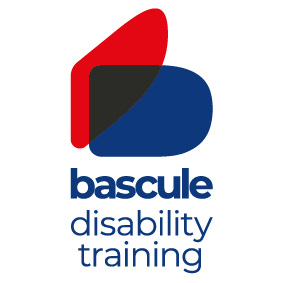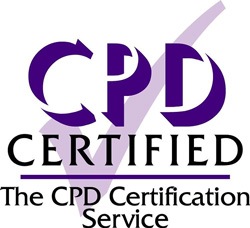Closing the disability pay gap

Historically, people with disabilities have experienced lower levels of pay, and fewer employment opportunities. In recent years we have attempted to close this gap through the introduction of inclusion initiatives, EDI policies and of course, the Equality Act 2010- but despite this, we still have a very long way to go.
In fact, in recent times, it seems like we have actually gone backwards rather than forwards. Take for example, the TUC’s findings at the end of 2023, when they revealed that the disability pay gap had actually become higher than it was a decade ago.
Their study showed that non-disabled workers earn around a sixth (14.6%) more than disabled workers revealing that the pay gap for workers with a disability across the board is £1.90 an hour, or £66.50 per week – that equates to a sum that the average household spends on their weekly food shop (£62.20). This is compounded when you consider that the average cost of living with a disability is 33% higher than for those without (Spencer please check this stat)
The pay difference accumulates to around £3,460 a year (in a 35-hour week) – and the TUC compared this to people with disabilities effectively working for free for the last 47 days of the year, or from 14th November onwards- (a date they branded ‘Disability Pay Gap Day’ in 2023). The analysis also revealed that, not only are workers with disabilities paid less than non-disabled workers, but they were also still more likely to be excluded from the job market.
Overall, the TUC’s findings pointed to the fact that there had been ‘zero progress’ on closing the pay gap in the last decade. So, what can be done? How can employers do more to try and close that gap, and create a more level playing field when it comes to paid employment? And if we want to make a change, where do we start?
Awareness and changing minds
Now, if you’ve read many of our blogs- you’ll be more than aware, that we believe that tackling virtually all issues related to disability should start with changing minds. This is best done through a shift in workplace culture through high quality disability awareness training programmes .
Educating and changing the perceptions of your staff (across all levels of seniority) will drive an ethos of equality in all areas of your business, meaning disparities in salaries will be less likely. It goes without saying that you’ll also need to increase salaries in accordance with equivalent non-disabled roles and review these salaries often and consistently. Of course, you can develop this further by implementing a transparent pay scale system so that a framework of equality is evident and clearly open to all.
Analyse your weaknesses
Next you should give some consideration to assessing how inclusive you currently are, with a view to gaining a closer understanding of where you may be failing. Ask yourself how inclusive you really are as an employer? Focus on gaining some insight from the people with disabilities that you currently employ, their voice may be a good starting point to assess general accessibility, and the opportunities for people with disabilities to develop within your organisation. You could use the opportunity to develop a group for employees to create a supportive community, and feedback on inclusive progress, moving forwards.
Once a commitment is made towards generally becoming more accessible and inclusive and this becomes a fundamental part of the ethos of the organisation, (and progress is assessed and reported), equality will naturally become more firmly embedded within the DNA of the business.
Reasonable adjustments
Whilst it is an employer’s duty to provide reasonable adjustments in the workplace for people with disabilities, it has been discovered that not all employers are forthcoming in executing these changes.
In The Great Big Workplace Adjustments Survey 2023, it was found that only 37 per cent of employees with disabilities feel their employer is genuine about removing all disability-related barriers and making the workplace inclusive for employees with disabilities. And only 18 per cent of employees with disabilities said their adjustments have removed all barriers in the workplace.
Failing to offer the required provisions for a staff member with a disability can mean their overall progress and professional development is greatly hindered, thus impacting their potential earnings. In order to create a level playing field whereby people with disabilities are able to progress their career and advance equally, it is essential that they are able to bring the best version of themselves to work, which reasonable adjustment is critical in achieving.
Maintaining a working environment that is fully accessible falls into this same category in that providing all staff with the physical and technological ability to excel within their position, will pave the way for progress and promotion.
As a reminder, the average cost of a reasonable adjustment is £75 and Access to Work can support employees who need expensive adaptations. The burden does not have to fall solely on the business.
Train your managers
Another way of ensuring that all staff with disabilities have an equal opportunity to gain extra skills and qualifications and prospects of promotion, is to ensure that managerial staff are properly trained.
Very few organisations provide the necessary training that managers need to support people with disabilities. In fact, the CIPD reported that only 30% of organisations provide guidance/training for line managers on how to support people to stay at work when managing disability or a health condition. It was also found in a survey this year, from DEJI Digital / Green Park, that 73% believe their leadership fails to foster respect and inclusivity.
70% stated a lack of supportive resources, and 75% confirmed the absence of training sessions addressing bias and promoting professional conduct.
Without sufficiently trained managers, people with disabilities have fewer opportunities to develop their skills, work to their best ability and advance their career.
Recruitment
Maintain and develop an accessible process throughout all of your recruitment, for roles at all levels of seniority to ensure that people with disabilities have access to opportunities at all levels of the organisation. Make your dedication to inclusivity abundantly clear across everything you do, and encourage people with disabilities to join your company as you offer opportunities that are faire and equally paid. You can find out more about inclusive recruitment strategies in this Bascule blog.
If you are interested in creating a more inclusive workplace culture- we can help. Call today, on 0330 3800662, or email us on info@bascule.com to find out more.
CHRIS JAY, MANAGING DIRECTOR, BASCULE DISABILITY TRAINING



